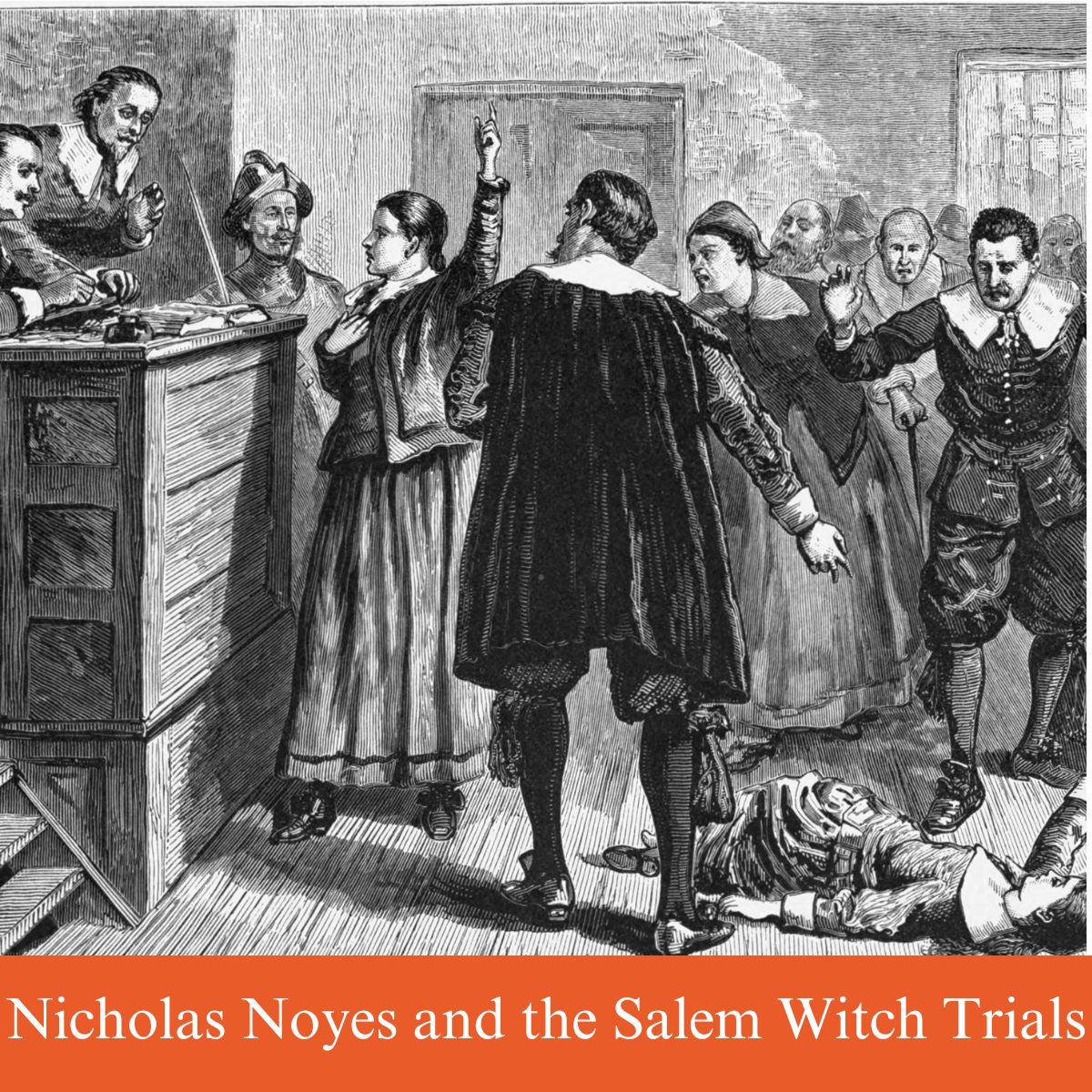Nicholas Noyes was a member of the clergy during the Salem Witch Trials that took place in Salem, Massachusetts Bay Colony.
He was the second minister called "Teacher" to John Higginson and served as the official minister of the trials.

Early Life and Career
Nicholas Noyes was born to his father, Nicholas Noyes and Mary Cutting. He came from a family of pastors, which included his father, grandfather (William Noyes), and nephew (James Noyes).
Growing up in the Puritan faith, he was well-educated in the doctrine that was taught. He would have had a high biblical literacy at a young age and would be given the opportunity to follow his family legacy.
He attended Harvard, where he graduated in 1667. After graduation, he would take a position in Haddam, Connecticut, where he would serve for thirteen years. During that time, he proved his ability and saw some success.
He also served as the chaplain to troops that fought the Wampanoag Tribe during King Philip's War.
In 1683, he left Connecticut for Salem, where he would stay until his death.
The Salem Witch Trials
One of the first mentions of Rev. Nicholas Noyes is at the execution of Sarah Good, where he asked her to confess. It is said she yelled at him with a famous quote of defiance:
I am no more a witch than you are a wizard, and if you take away my life, God will give you blood to drink
This quote is a possible legend as it does not appear in contemporary records.
On September 22, 1692, Noyes had officiated as a clergyman at the final hangings of those accused of witchcraft. It is reported that he turned toward the suspended bodies of the victims and said, "What a sad thing it is to see eight firebrands of hell hanging there."
After this execution, there was a shift in public opinion, which had already begun to shift prior to the executions. The accusers began to accuse some in the clergy, government, or their wives of witchcraft. These accusations even included Increase Mather, who was one of the most powerful men in the community.
One of these accusations was levied against Sarah Hoyes Hale, who was the wife of John Hale, daughter of James Noyes, and granddaughter of Rev. William Noyes. The accusation made against her was that she and Mary Easty were afflicting the girls.
Nothing came of these accusations as Sarah was the wife of a more upscale member of the community and, therefore, was immune to these sorts of accusations. However, it did cause many in the higher society to take notice and begin to doubt the validity of these trials.
One such person who had doubted for a while and had the power to now act was Governor William Phips, who took sweeping action against the trials. He began to dismiss charges of those who were accused and take a more active role in combating the court's decisions passed down by William Stoughton.
Some have said that Nicholas Noyes retracted his opinions and repented for his errors during the trials. However, there is no proof of that. Instead, a 1703 petition to clear the names of the accused witches, signed by Essex County ministers, did not include Noyes' name.
In 1712, the excommunications of Rebecca Nurse and Giles Corey were reversed by the Salem Church. This did not occur due to the actions of Noyes but due to the pressure of Samuel Nurse.
Nicholas Noyes died December 13, 1717, under peculiar situations; at least, that is what the legend says. The legend says he died choking on his own blood, which is what Sarah Good had allegedly prophesied to him.
<- Return to the List of People Involved in the Salem Witch Trials
